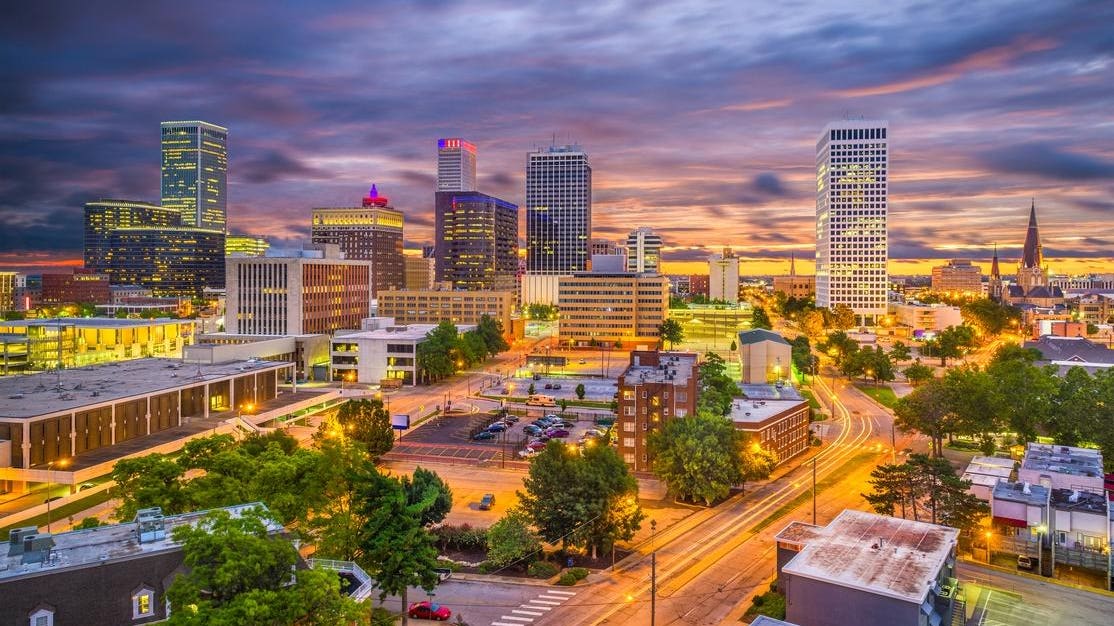Ashli Sims, the managing director of Build In Tulsa, challenges Black businesses to think creatively regarding location.
Arich history of economic development – that’s one reason to relocate to Tulsa.
The home of the historic Greenwood District, or “Black Wall Street,” and a city with a population north of 400,000 people, 14.8% of whom are Black, Tulsa is quietly gaining traction from Black entrepreneurs looking to grow their startups, says Ashli Sims, the managing director of Build In Tulsa.
“There’s a community of Black entrepreneurs doing the same thing that you’re trying to do,” Sims tells Forbes. “Tulsa can be a model for an inclusive, innovative economy for the rest of the country.”
August is National Black Business Month, and ForbesBLK is highlighting the theme with in-depth interviews with Black entrepreneurs, CEOs and other executives. The topics include finding capital in a high-interest-rate environment, expanding social capital and business loan options. In this interview, Sims invites founders looking to grow startups to explore moving to Tulsa, and the invitation incorporates rather than shies away from discussion of the city’s bloody history.
“You’re literally standing on the shoulders of giants,” she says. Build In Tulsa, Sims adds, is “amplifying and elevating Black entrepreneurs.”
Destigmatizing debt
Founded in 2020, Build in Tulsa is a nonprofit organization that aims to tackle the wealth gap by training Black entrepreneurs and providing pathways to capital via accelerator programs. The organization has invested $5 million in over 324 startups in its network, according to Sims. As a result, she estimates those companies have raised over $20 million in additional capital. Founders must live in Tulsa for the duration of accelerator programs to receive funds. In August 2022, Forbes partnered with Build In Tulsa for its “Journeys to Wealth” series, which included trips to Tulsa and its history center, Greenwood Rising, dedicated to the 1921 Black Wall Street massacre that destroyed a prominent economic ecosystem in the city’s Greenwood District.
“We want to make sure you have the human capital, the social capital and the financial capital you need to succeed,” says Sims. “And it takes all three of those things.”
As more Black entrepreneurs enter the business economy and aim to replicate Tulsa’s history of Black economic development, Sims suggests they educate themselves on the differences between good debt and bad debt. That advice comes on the heels of American credit-card debt reaching a record-high $1 trillion. Keep in mind that Black founders tend to use personal funds to meet financial challenges more than other ethnic groups. “Everybody is scared of debt,” Sims says. “But the fact is, that’s how most major businesses run; they have a line of credit.” She suggests that Black founders become comfortable with debt and the process of applying for it, especially from Community Development Financial Institutions.
Watch the video for more from Sims.
MORE FROM FORBES
Read the full article here





